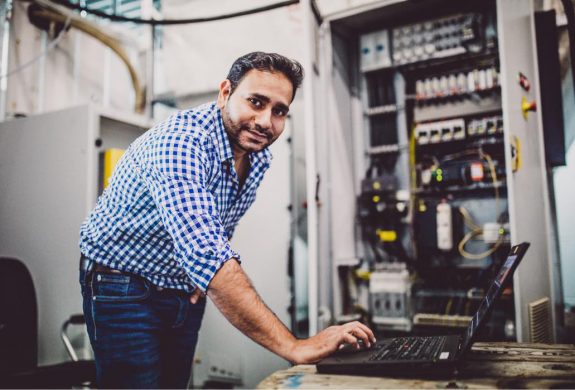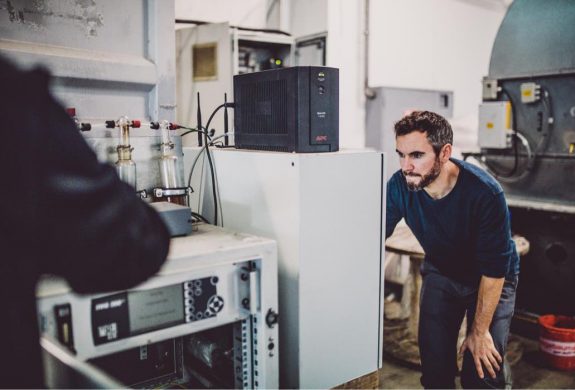Consultation
In an initial consultation, we ask you about your objectives and the general conditions.

Our Plug & Perform approach aims to provide an all-round service that largely frees the customer from having to look after the plants, so that they can concentrate on their actual business. Our customers' satisfaction starts with expert advice and planning, continues with remote control of the largely automatic systems, and extends to professional maintenance and servicing. With this all-round service, we want to set standards. By the way, we use sophisticated calculation tools to show the economic perspective of an investment and thus create a clear basis for decision-making.
We serve customers from various industries and in many regions worldwide, from the DACH region to Italy, the UK, Eastern Europe and Japan. Although we can offer proven industry solutions, individual customer needs and local conditions require a customized project.
In an initial consultation, we ask you about your objectives and the general conditions.
An on-site visit helps us to get an authentic insight and to record further important parameters.
Usually, we can already outline possible solutions and give initial indications of investment requirements and earnings potential.
The further detailing up to the concrete offer takes place in constant dialogue, so that ultimately we hit the target exactly.
Our sophisticated machine control system, which achieves self-regulation even in the event of fluctuations, e.g. in fuel quality, has a special market position, enabling fully automatic operation. Via our round-the-clock control center in Regensburg, we can monitor and control plants anywhere in the world with regard to all essential technical parameters. This enables high plant availability and reduces the need for on-site personnel.
After installation of a system, we offer our customers not only an extensive warranty promise but also a reliable all-round service at attractive prices. This includes scheduled maintenance work and 24/7 monitoring and control of each individual plant by our service center in Regensburg. With our market-leading technology, we can continuously monitor the automatically operating plants with regard to numerous technical parameters and take corrective action if necessary. This ensures high process efficiency and plant availability, minimizing the need for on-site personnel.

Since our plants are largely self-regulating and are monitored and controlled by the Service Center, the need for our service technicians to be on site is limited. When they arrive for annual maintenance or a malfunction, they are optimally prepared on the basis of the extensive machine documentation and bring any spare parts that may be required. In the final meeting with the customer, the condition of the plant is then discussed and we give advice on how to achieve even better performance, for example by improving the fuel quality.


Contact us now free of charge and without commitment. With brief information about your needs, the location of your company and what your expectations are, we can advise you on how a biomass CHP system can be used in your company.
Contact usWe have compiled the answers to important questions for you.

A biomass CHP unit with wood-fired power generation is particularly worthwhile for companies that require constant large amounts of thermal energy for their operations – even in summer. This is because a biomass cogeneration plant is only maximally economical if it operates at full load for a certain number of hours per year. Alternatively, excess heat energy can also be converted into cooling energy in the summer.

Our CHP units generate electricity and heat all year round. Therefore, there should be sufficient electricity and heat demand throughout the year.
Technical requirements:
To ensure a smooth start-up of the system on site, the customer will provide the following on-site installations:

A plant for wood-fired power generation is a very individual solution, where the investment costs and also the running costs can be very different. In addition, the various fuels and, if applicable, their processing also result in varying costs. Depending on the application in the process or in the building, different subsidy amounts also come into play, so that a generalization of the total costs is hardly possible.

Companies that use wood-fired power generation by means of a biomass cogeneration plant to generate energy and thus make a contribution to climate protection receive financial support at many levels in Germany. In addition to the feed-in tariff for surplus electrical energy, the German Federal Ministry of Economics and Export Control (BAFA) supports corresponding projects.
The Kreditanstalt für Wiederaufbau (KfW) also supports climate-friendly rethinking with development loans and repayment subsidies of up to 55 percent of the eligible costs. And the individual German states and regions also reward the use of biomass CHP units as progressive and environmentally friendly energy generation.

